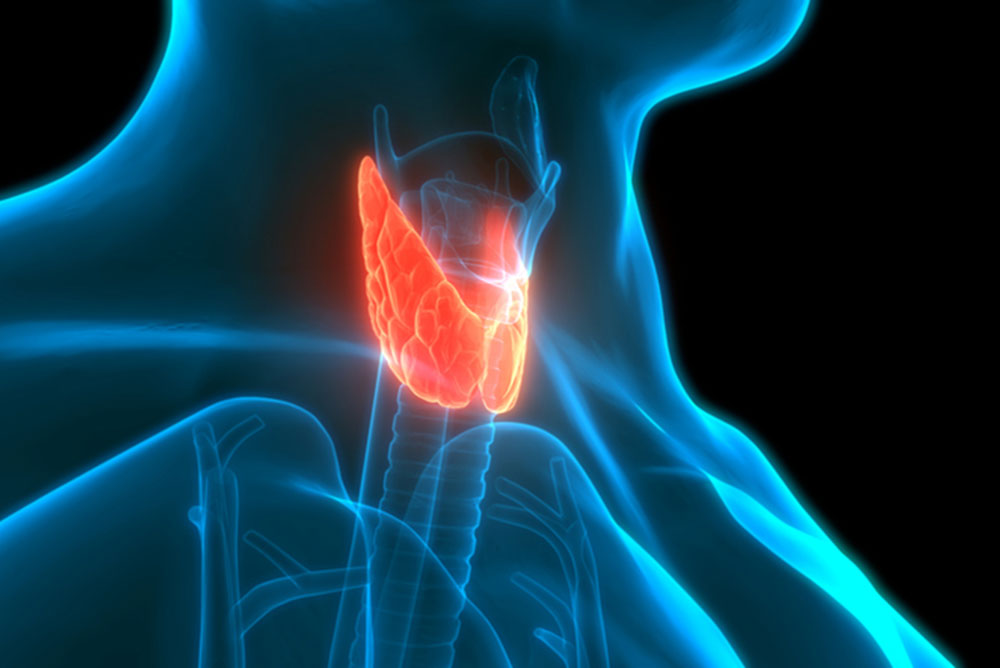
iStock
WORKUPS over the years for problems with fatigue led doctors treating Polly R., a now-retired political aide, to focus on an underactive thyroid, or hypothyroidism. On their advice, Polly took the supplemental thyroid hormone levothyroxine (first the brand Synthroid, then Tirosint), ate carefully, exercised diligently and, most challenging, gave up coffee.
But switching doctors at age 71, Polly got a pleasant surprise: the new recommendation that, as she put it, “at this point in my life one cup of coffee would do little harm and much good.” Her new doc also explained that, with age, most people need lower levels of thyroid medication—and “normal” measurements may no longer apply.
Another difference in impaired thyroid activity in those 65 and older can be a single symptom—such as memory loss or decreased cognitive function—compared to the long list of possible symptoms in younger adults.
Because thyroid hormones affect so many functions of metabolism, insufficient levels often cause fatigue and insomnia, as well as dry skin, hair loss, constipation and joint pain. Depression can be a symptom of hypothyroidism—or both can be the result of excessive stress.
Depression, sleep problems and stress are all on the rise during the coronavirus pandemic. Disrupted daily routines, Stanford University sleep specialist Donn Posner told in the Harvard’s T.H. Chan School of Public Health “Coronavirus Update” series, help create a “perfect storm of sleep problems.”
The primary measure of thyroid health is the level of thyroid-stimulating hormone (TSH), which is created by the pituitary gland and in turn prods the thyroid gland to produce the hormones T3 and T4. When these hormones are low, the cause is most often autoimmunity—when the body’s immune system in overdrive damages the thyroid gland. Of more than 90% of low-thyroid cases traced to Hashimoto’s thyroiditis, the risk increases for women, for those over 60 and for those with a family history.
In addition, prominent among environmental triggers for thyroid disorders is chronic stress—when increased levels of stress hormones, such as cortisol, cause lower blood levels of thyroid hormones and slow the metabolism—one reason underactive thyroid can lead to insulin resistance and weight gain.
Because many people with low-thyroid symptoms have TSH levels measuring in the normal range—and are thus not candidates for supplemental thyroid—some specialists prefer to use a narrower “optimal” TSH range —between 1.0 and 2.5 mIU/L (milli-international units per liter) of blood, versus the traditional wider normal of 0.5 to 4.5.
Such optimal levels may also be a better goal for combating hypothyroid issues, such as weight gain and hair loss. While hair loss can occur with both under- and over-active thyroid (hyperthyroidism), the blame most often falls on low-circulating TSH levels or insufficient dosage of supplemental thyroid hormones.
Practitioners of “functional medicine” often rely on the optimal thyroid levels, along with other measures of poorly performing thyroid hormones. Rather than prescribing supplemental thyroid, however, they focus instead on stress as both the cause of low hormone levels and as the best target to “modulate the expression of autoimmunity,” according to functional medicine thyroid expert Datis Kharrazian, author of Why Do I Still Have Thyroid Symptoms? When My Lab Tests are Normal.
Also challenging to treat is “mild hypothyroidism,” more prevalent in adults 65 and over, which causes no symptoms, and circulating thyroid hormones are normal—but elevated TSH levels indicate the thyroid gland may be working too hard, according to Harvard Health.
A possible explanation for the condition is that “normal” changes with age—with some research showing increased TSH levels in those 70 and older may have no negative health effects. A European study of more than 700 adults, average age 75, with mild hypothyroidism, found that treatment with thyroid medication failed to improve either symptoms or quality of life.
Overtreatment with synthetic thyroid hormones can cause jittery feelings and insomnia, as well as long-term loss of bone density. On the other hand, physicians worry about the risks of elevated cholesterol levels and damage to coronary artery health with untreated subclinical hypothyroidism.
For Polly, avoiding morning coffee had the goal of assessing her fatigue, before and with thyroid supplements, without the artificial boost. But after a few months on the new regimen, she reported, “It is such a pleasure to get that boost, now rediscovered, I will do almost anything to keep coffee in my life.”
Mary Carpenter regularly reports on topical issues in health and medicine.
